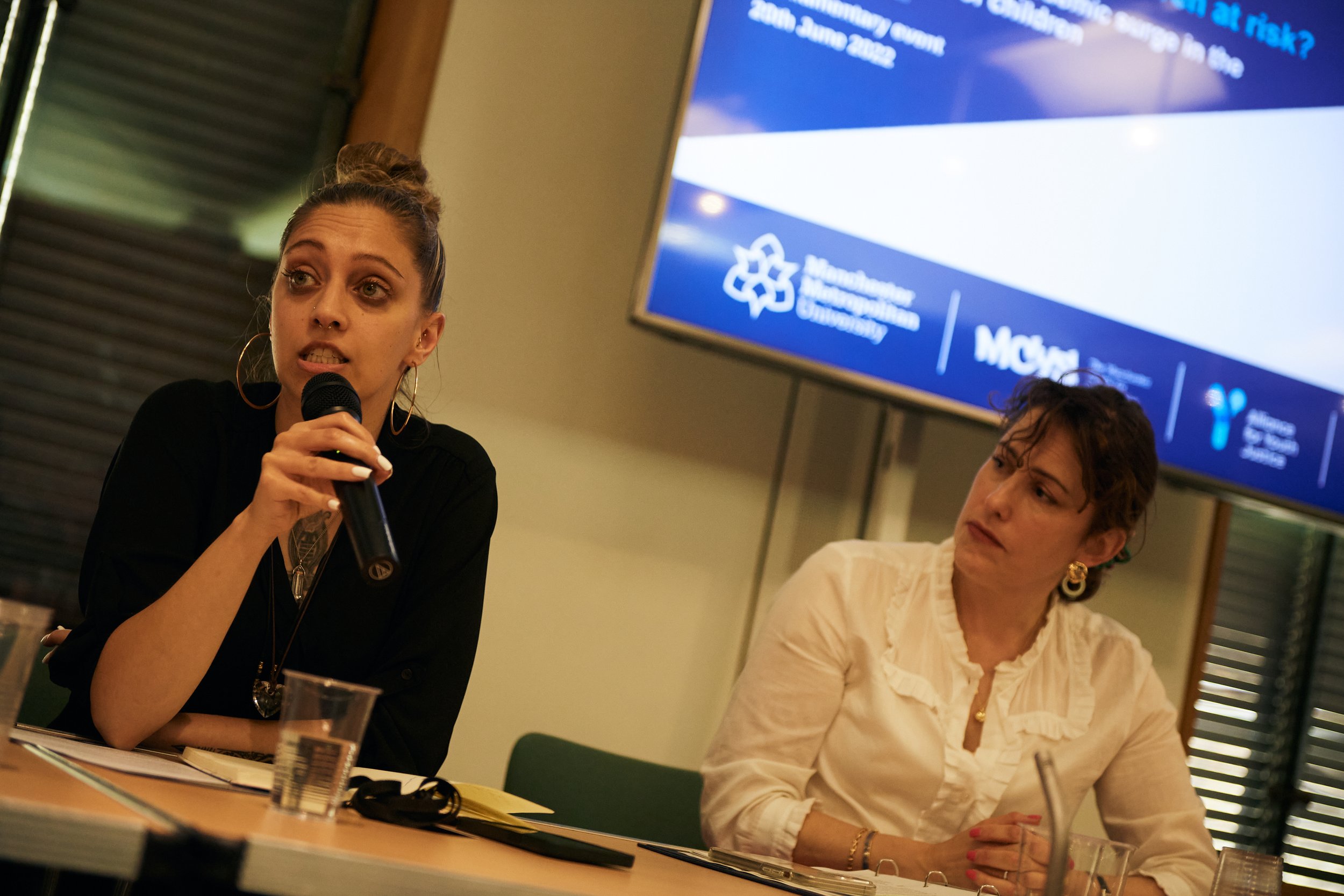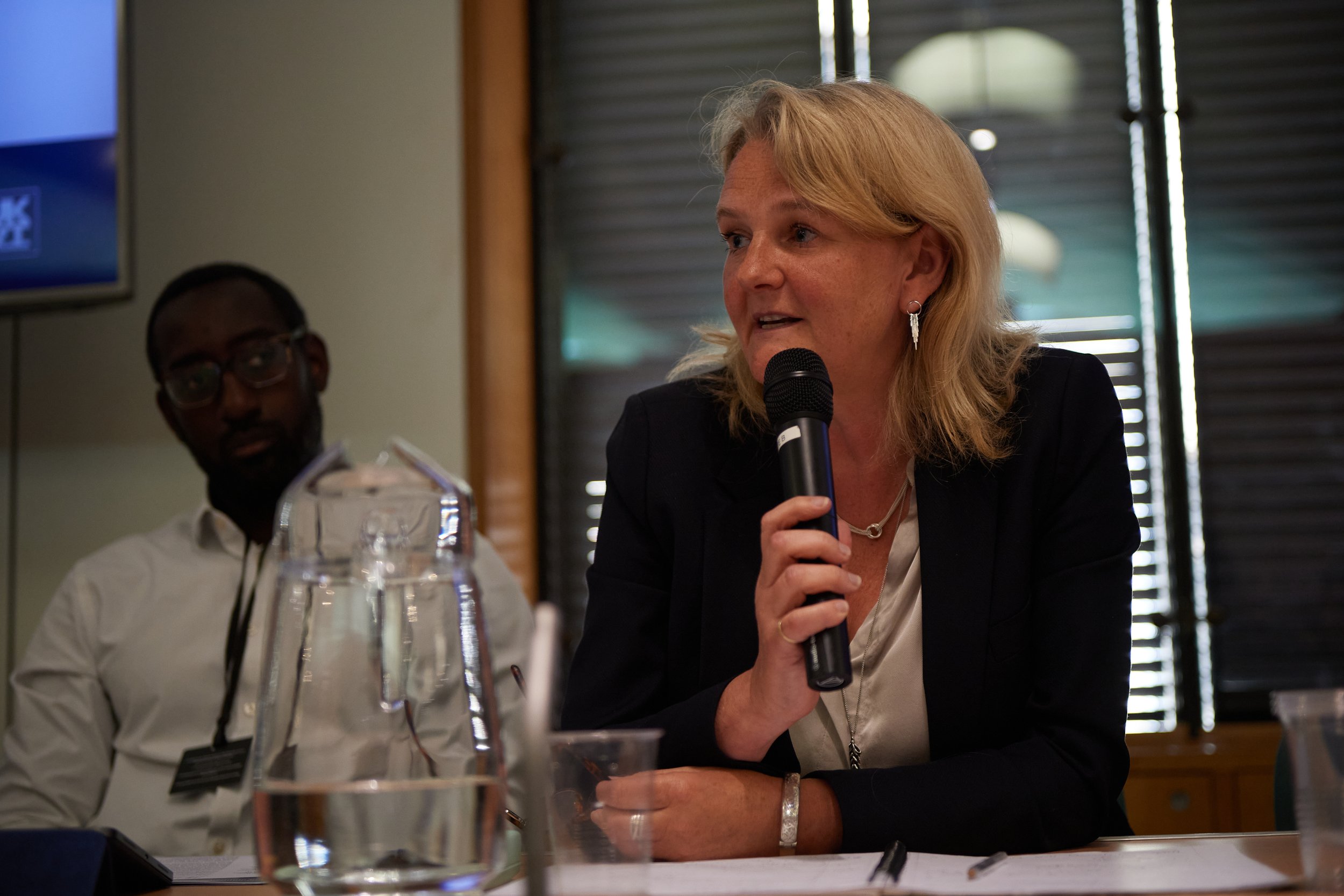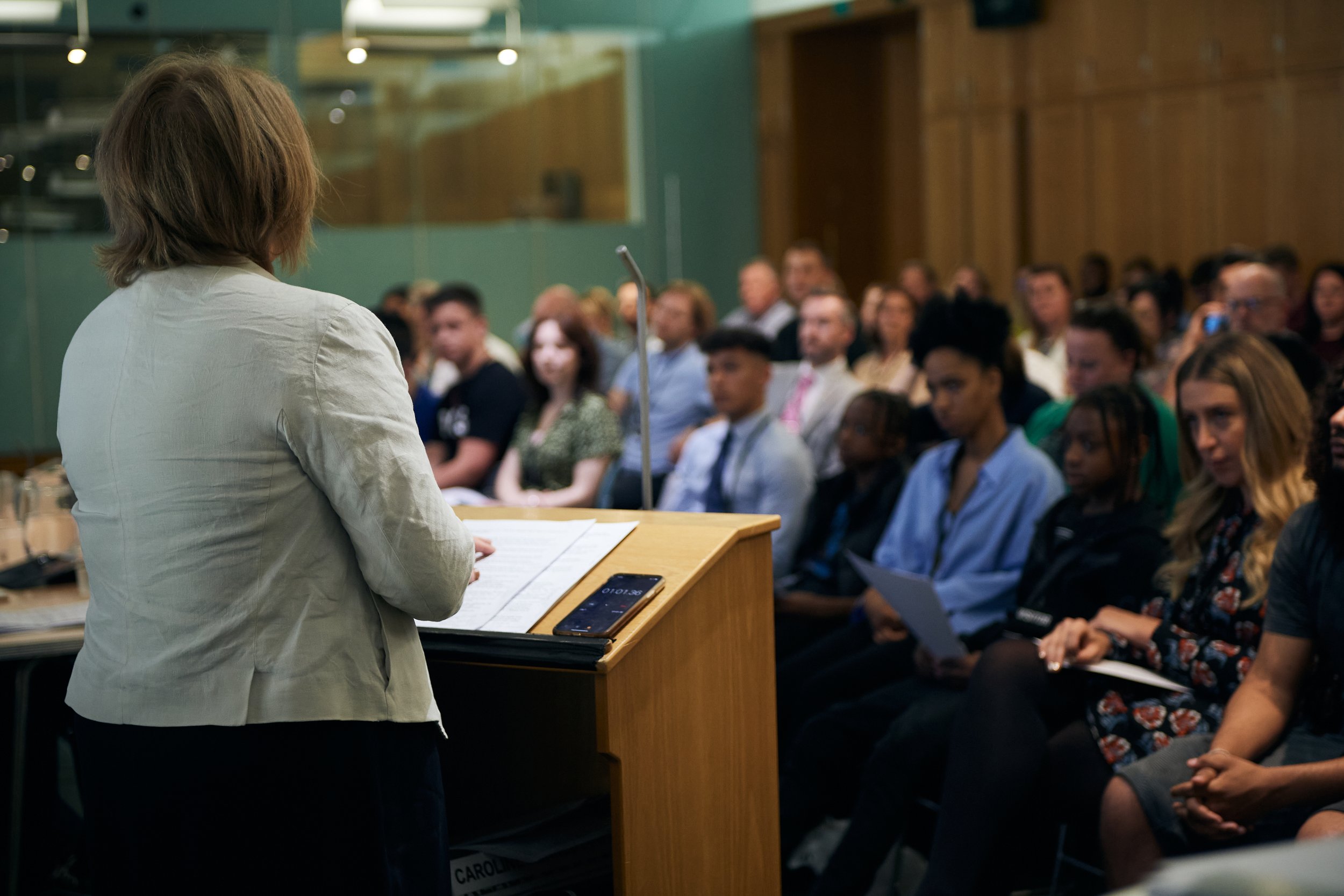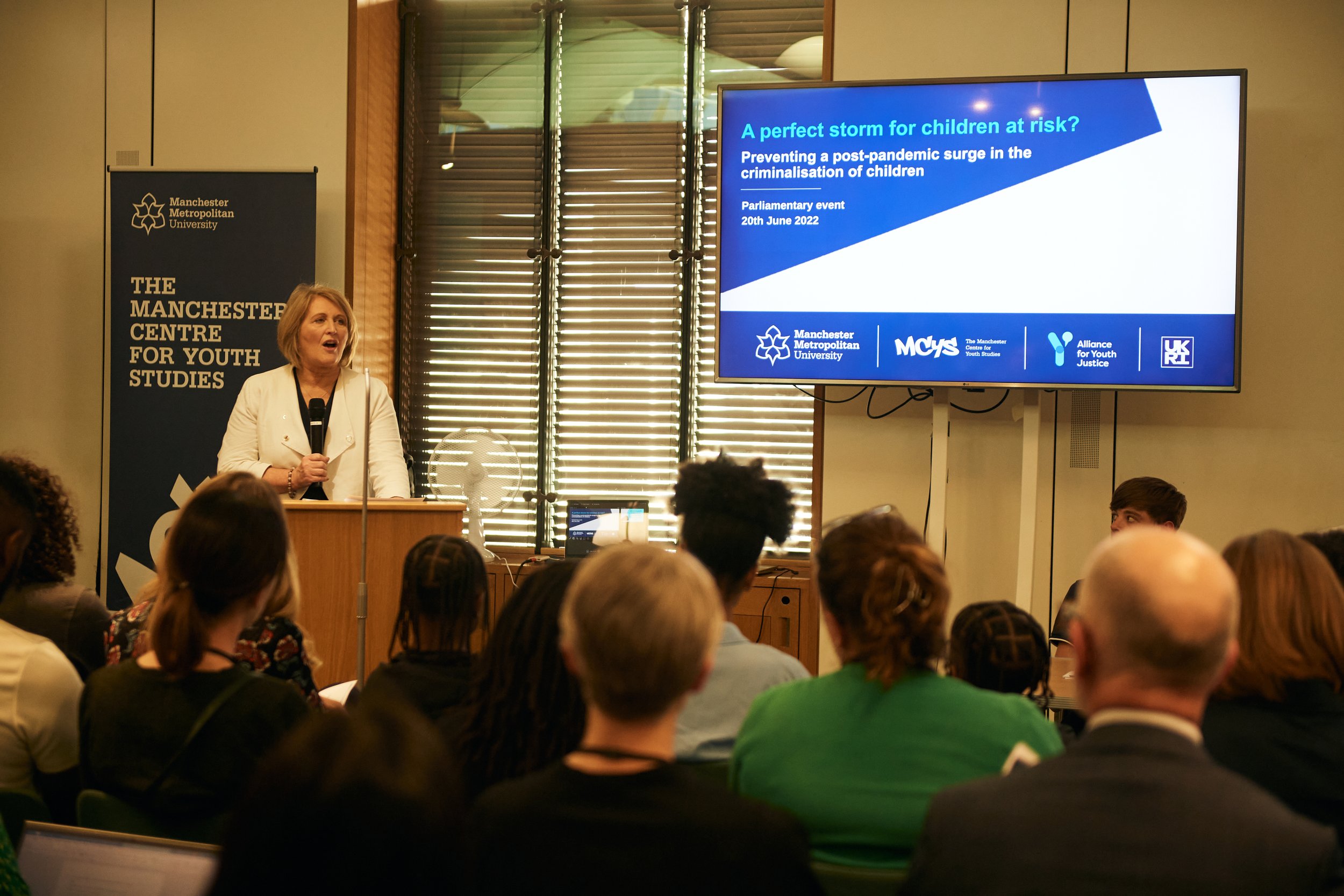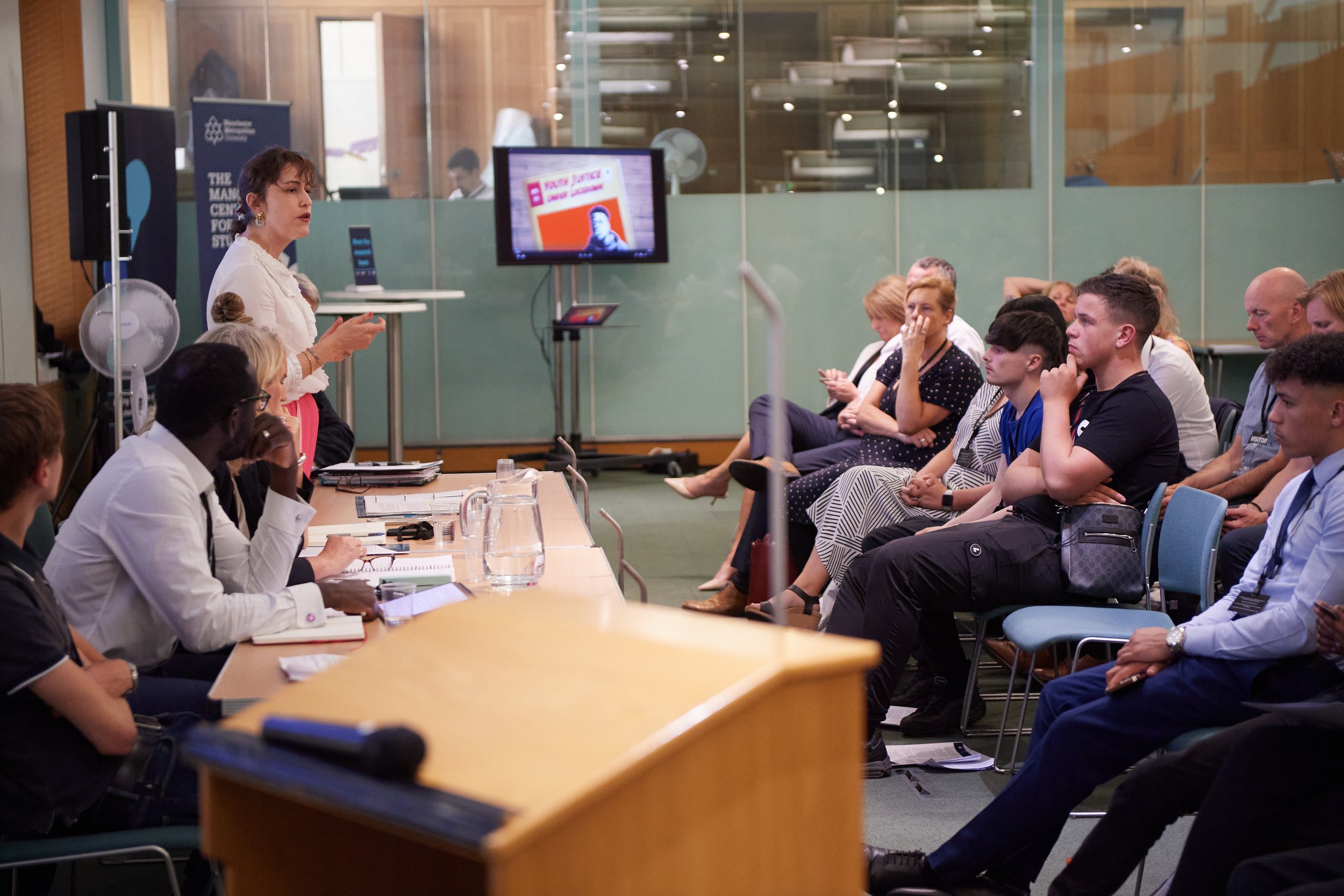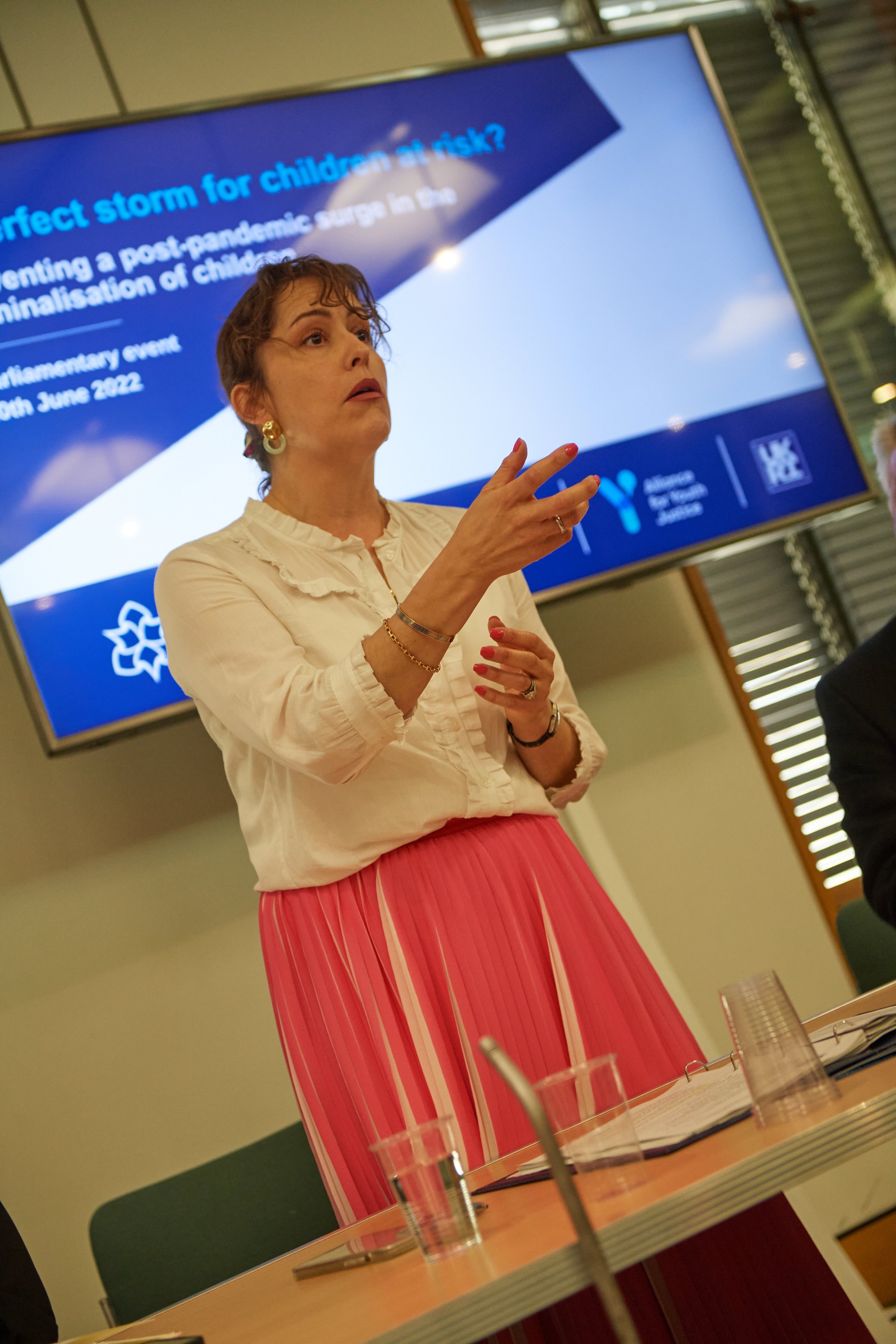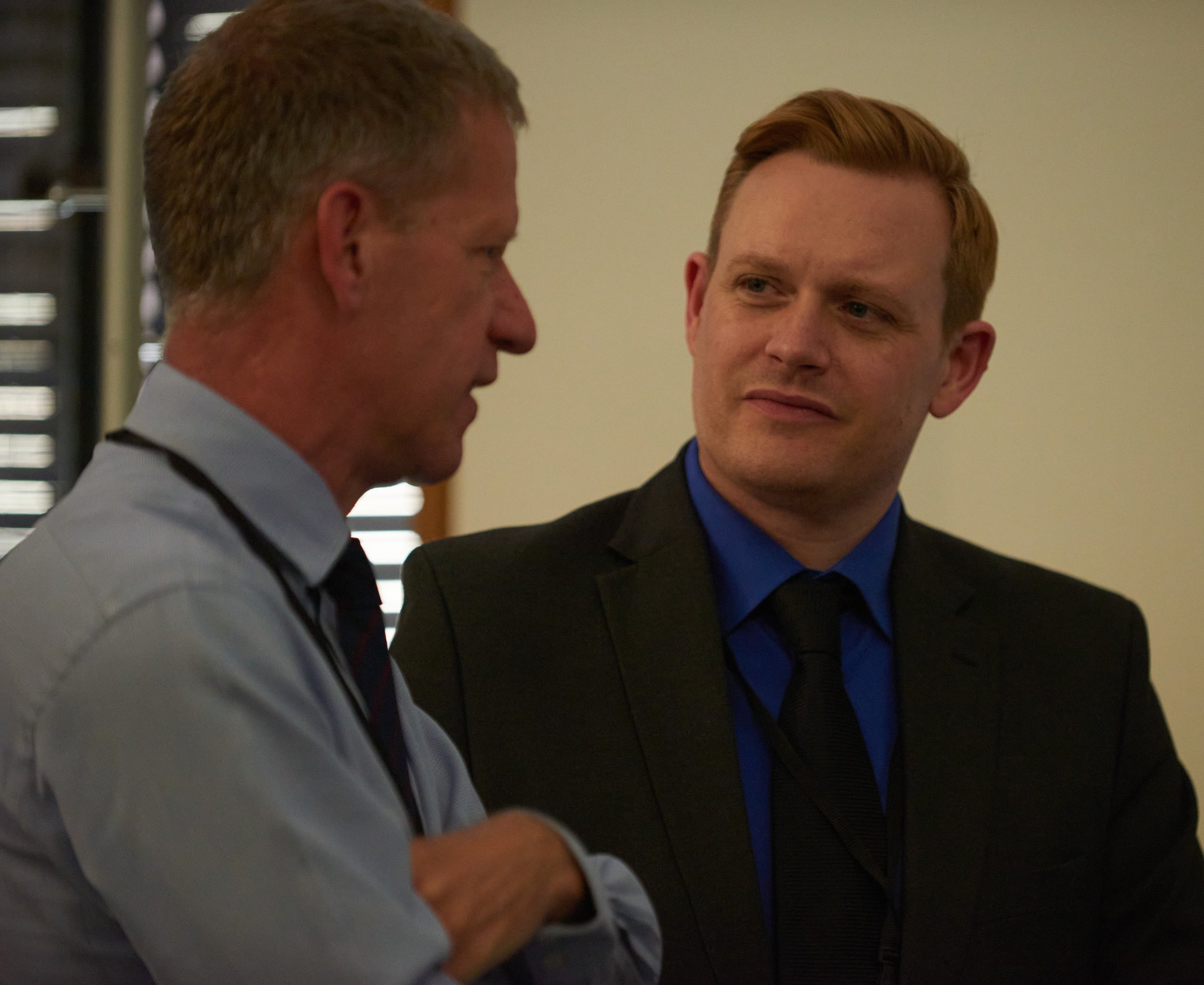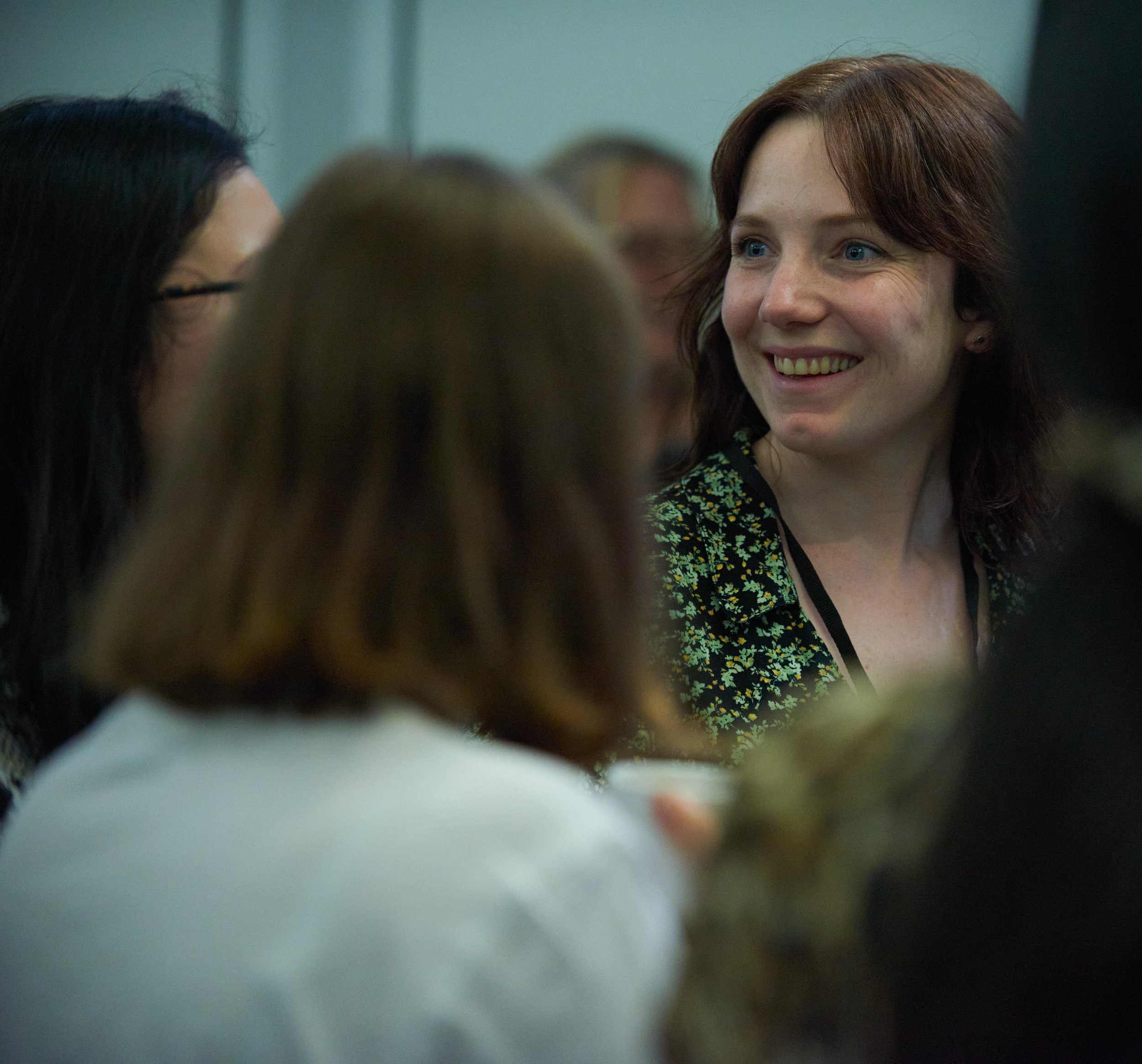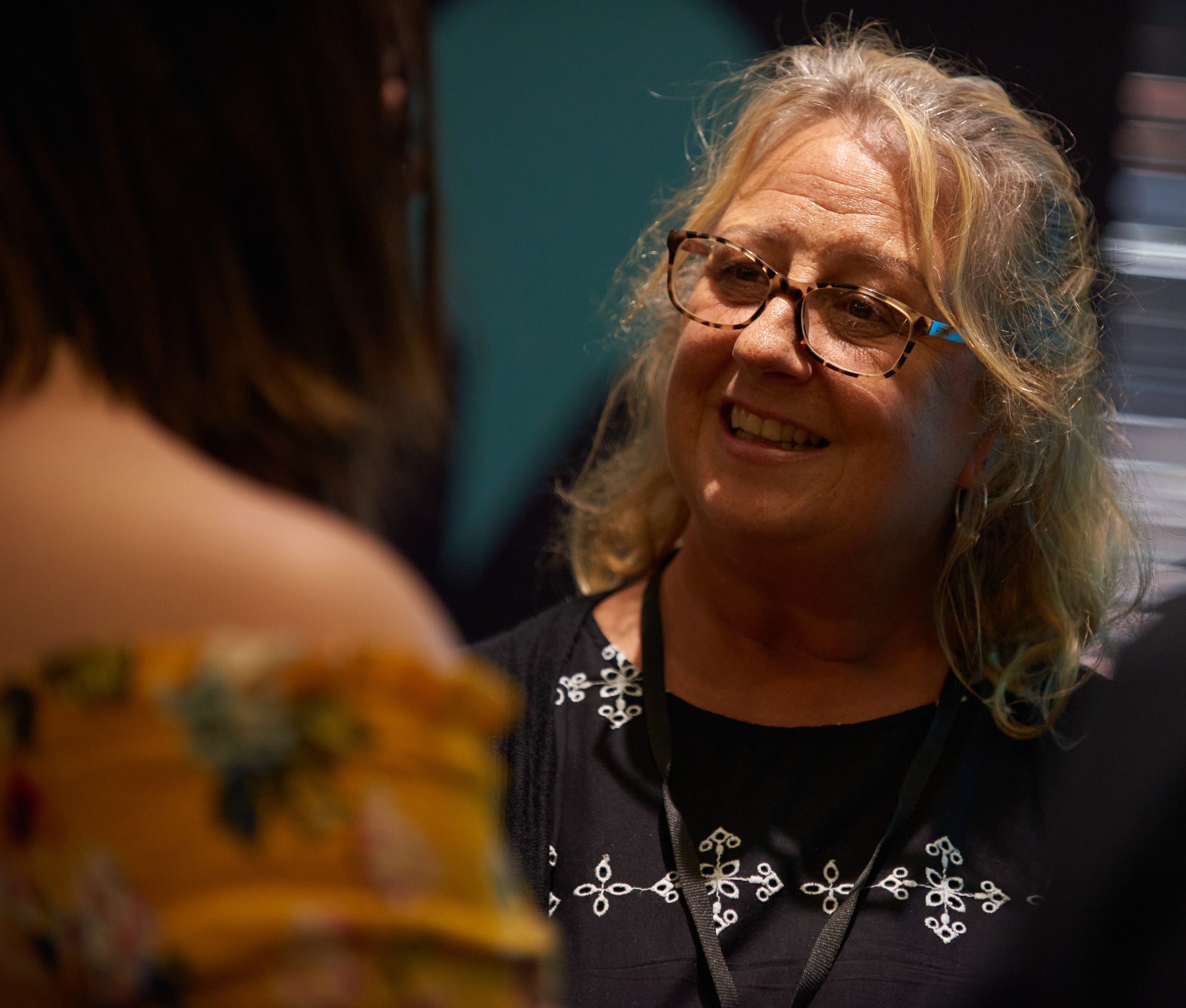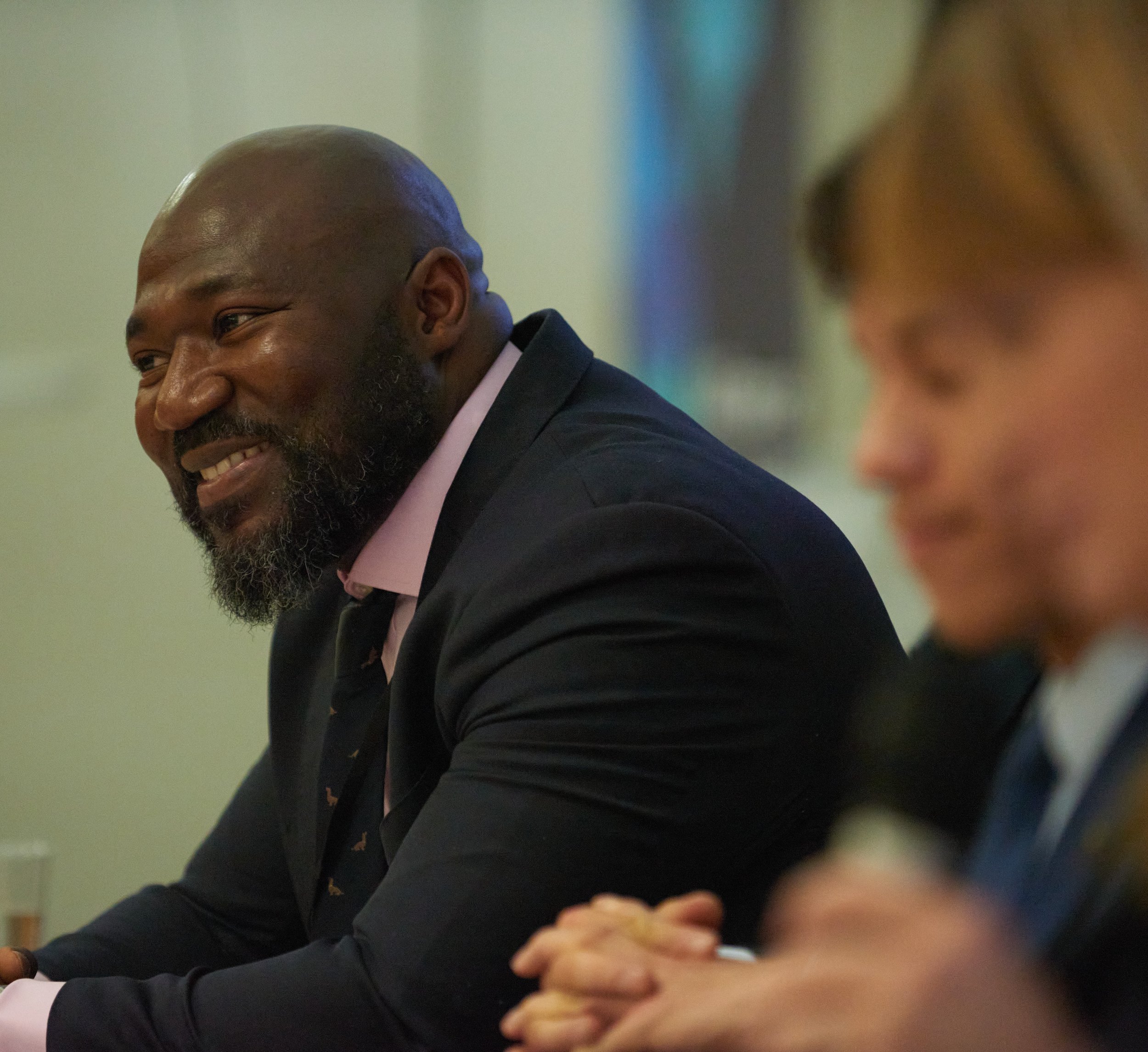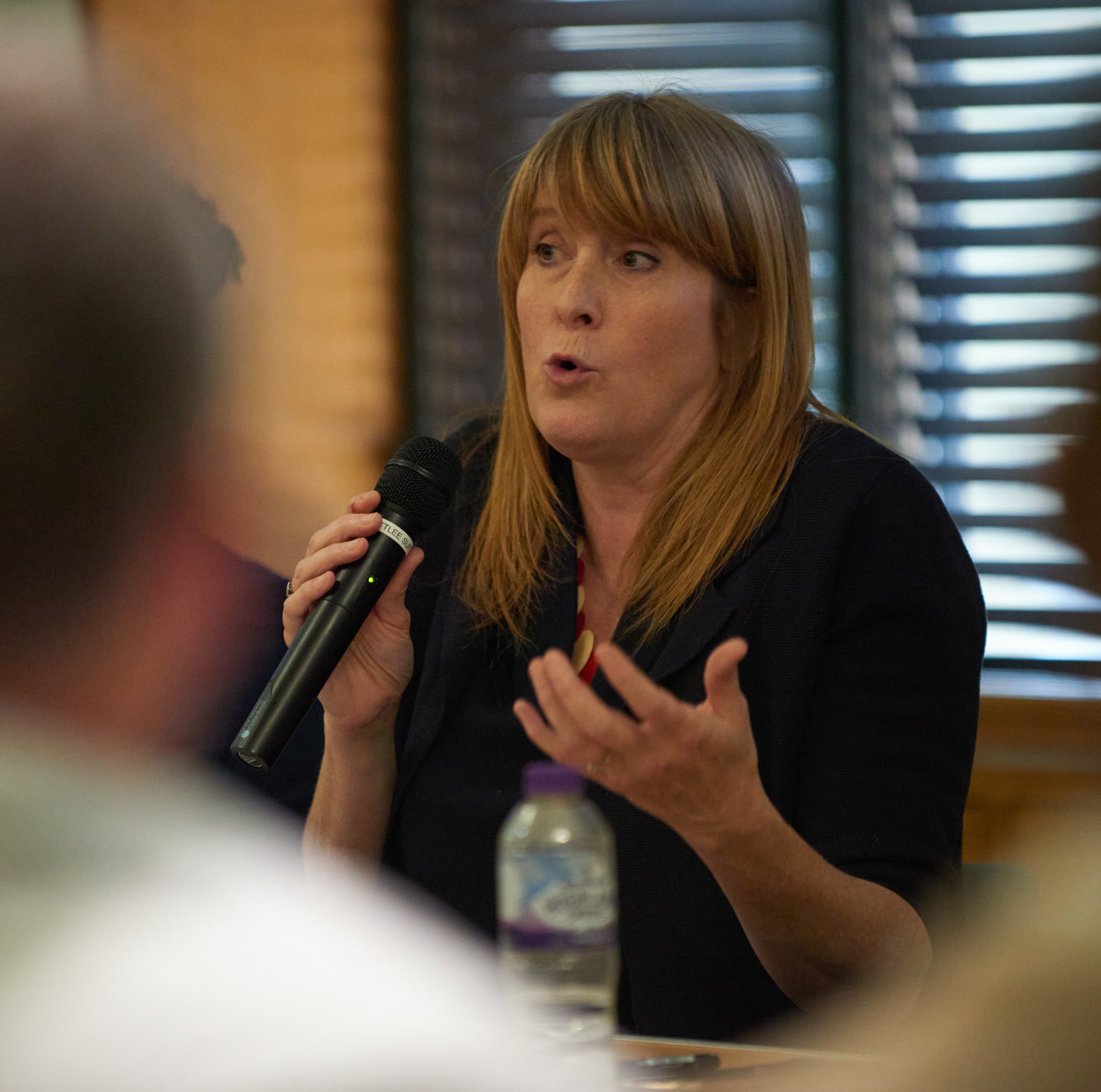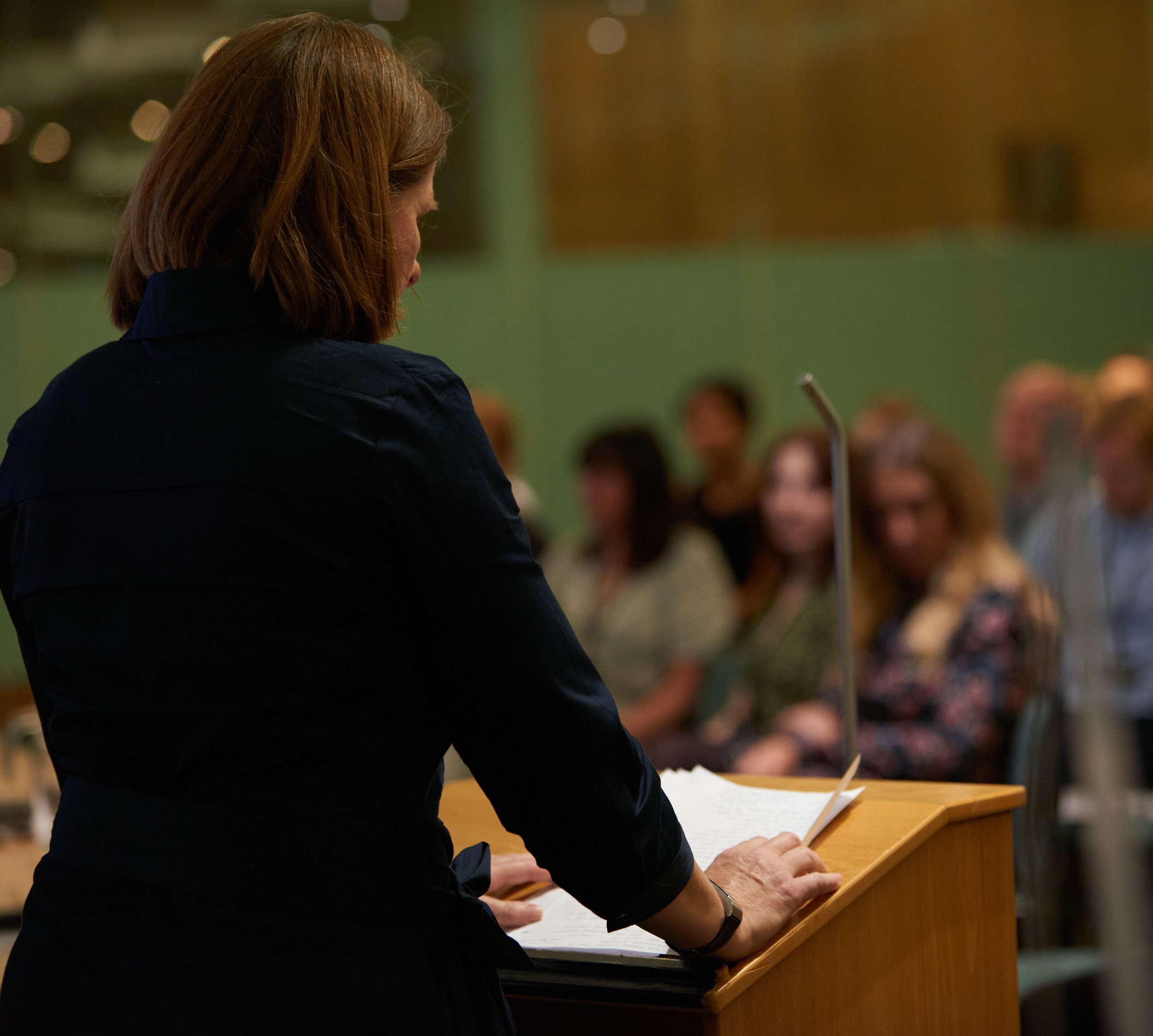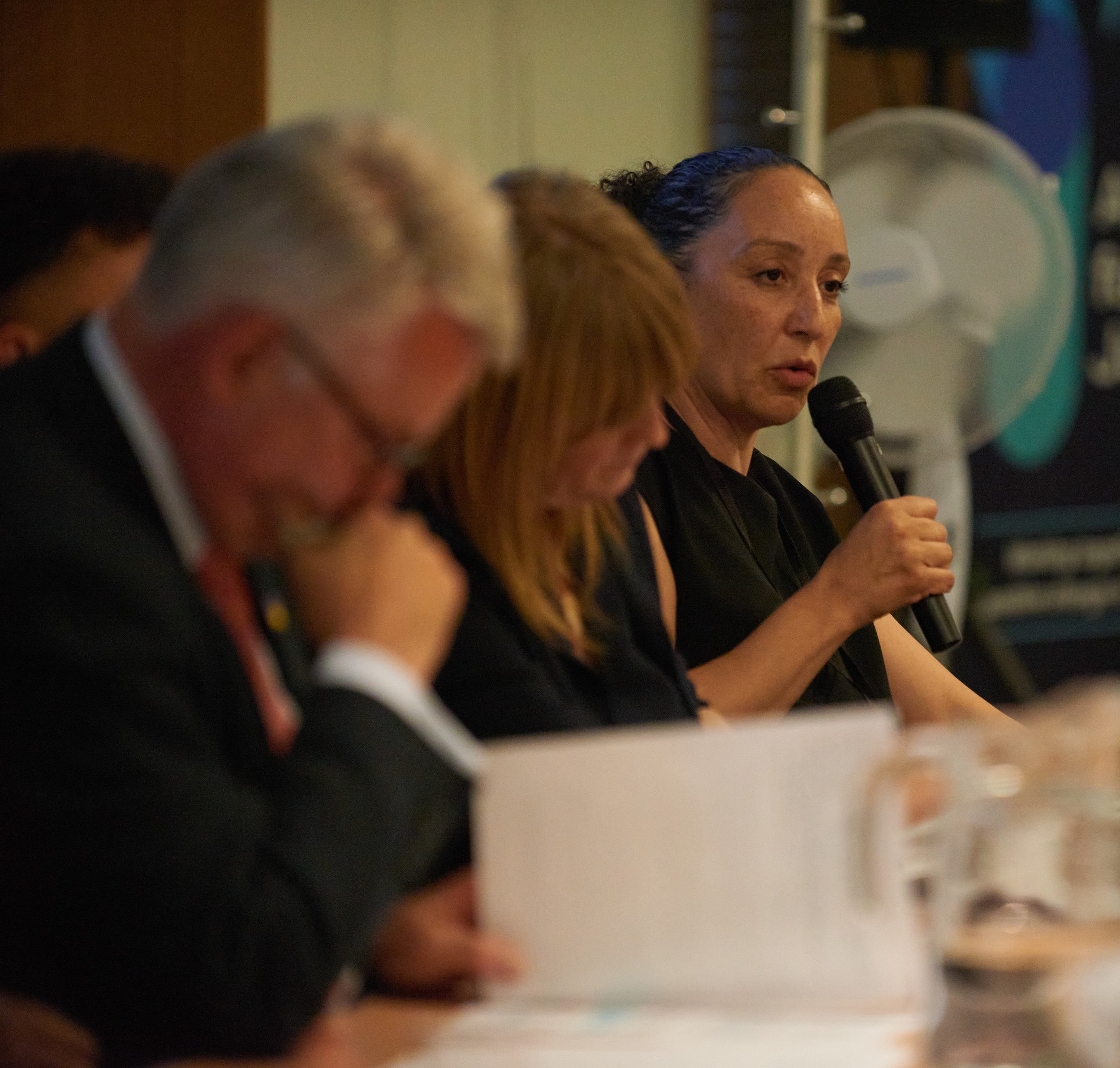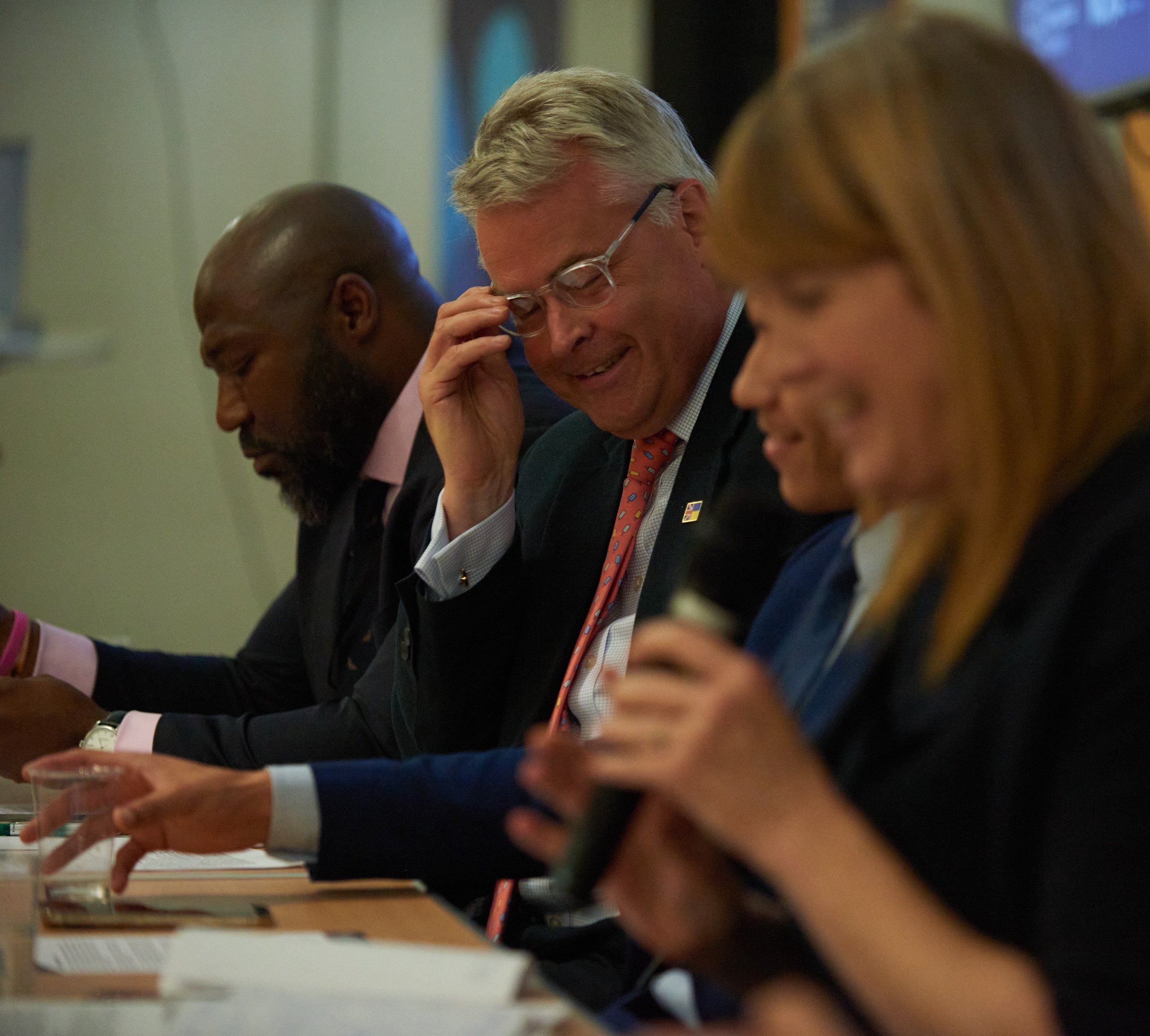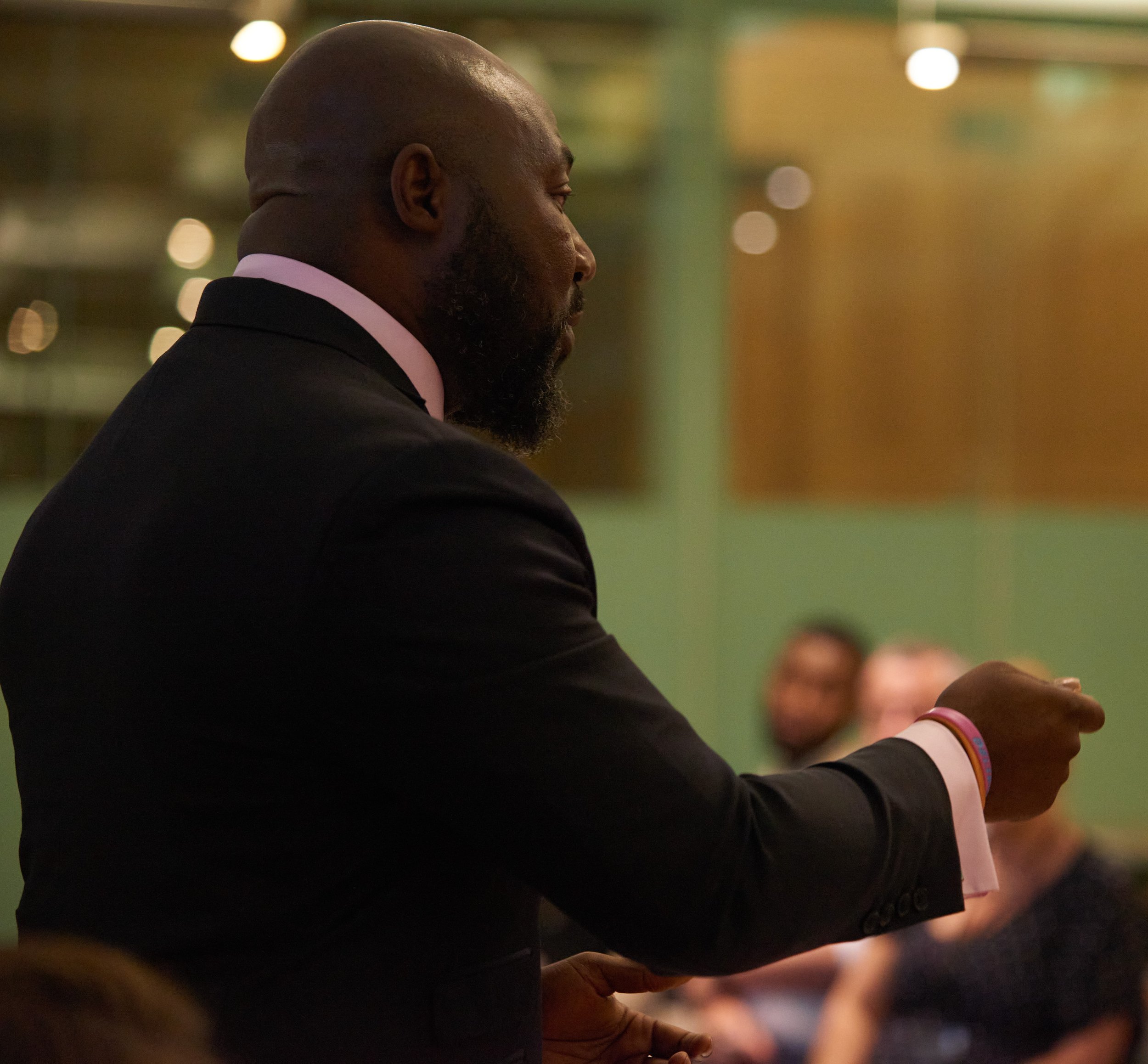Parliamentary event overview: A perfect storm for children at risk?
On Monday 20th June, the AYJ hosted a parliamentary event to explore the best means of weathering the ‘perfect storm’ post-pandemic that risks an increase in the number of vulnerable children in the youth justice system.
The event brought together Parliamentarians, policymakers, commissioners, practitioners, and children and young people. It was an important opportunity to further the conversation about what the response to children at risk of involvement with - and children affected by - the youth justice system should look like, ensuring that they receive the support they need and avoid criminalisation.
It was also an exciting chance to see many familiar faces and new friends in person after so many months of online meetings and events, and feel the energy and commitment in the room to address upcoming challenges in policy and practice for children at risk.
The event was part of the ‘Impact of COVID-19 on youth justice’ research project conducted in partnership between the AYJ and the Manchester Centre for Youth Studies (MCYS) at Manchester Metropolitan University, funded by the Economic and Social Research Council.
In particular it explored themes, findings and recommendations outlined in the recent policy briefing ‘A perfect storm for children at risk? Preventing a post-pandemic surge in the criminalisation of children', which highlights the need for a joined-up governmental approach with vulnerable children at its heart, and a drive for maximum diversion from the justice system.
Attendees heard from expert speakers and panellists, met with the project research team, and the Young Advocates were on hand as panellists, speakers and advisors. The event was kindly hosted by Rob Butler MP, and the panels for the event were both kindly Chaired by Tim Loughton MP.
Part 1 - Prevention and Early Intervention
Young Advocate Leon began the event with some opening remarks, including how important it is that young people’s voices were central to this conversation. Anne Longfield, Chair of the Commission on Young Lives, followed with a keynote speech, speaking about children falling through the gaps in the education or care systems, and the work of the Commission to set out solutions.
The first of two event panels addressed prevention and early intervention. Speakers were:
Adam, Young Advocate
Victoria Atkins, Minister of State, Ministry of Justice
Lib Peck, Director, London Violence Reduction Unit
Peter Babadu, Assistant Director of Research and Youth Understanding, Youth Endowment Fund
Whitney Iles, Founder, Project 507
Firstly, the importance of tackling the exploitation of vulnerable children and young people was outlined, with reference to the new Turnaround scheme , for which £60 million is pledged to boost early intervention across England and Wales over the next 3 years.
The panel highlighted gaps and failures in protection and support for children: critiquing education measures such as school exclusions, emphasising trauma and isolation as some of the key causes of entry into the youth justice system. The impact of contact with the justice system and in particular imprisonment on children’s mental health was discussed, highlighting how ineffective custody is at preventing reoffending. Conversely, panellists discussed the positive impact of schemes like mentoring, and the power of youth work and access to sports and creative clubs. Community-based interventions were lauded as inclusive responses to the criminalisation of children, and holding the lived experience of children and young people was highlighted as a critical component of effective prevention schemes.
Break: Engagement with Research Team and Young Advocates
During the break between the two panels, attendees were invited to meet the Young Advocates, discuss their concerns about the youth justice system, and hear about their peer research. Members of the project’s research team were also at hand to talk about the research papers, and a short film that was co-created with children and young people involved with the project was shown.
Attendees were invited to write responses on Q&A cards to questions asked by the Young Advocates to delegates. The questions ranged from how best to amplify the voice of young people in policymaking, to what actions are required to safeguard exploited children.
“Young people and children (must be) safeguarded and protected by police, not treated as criminals.”
“(We must) invest in prevention and youth work. Look beyond behaviour and ask ‘why’ are children and young people behaving like this, and what can we do to help their ‘why’?”
“(We need) better wages for youth workers, social workers etc, so that they become real options for young people and those with lived experiences.”
Part 2 - Policing and Diversion
Panellists in the second part of the event discussed a range of strategies and approaches to improving policing practice and diversion from the youth justice system. Speakers were:
Tranai, Young Advocate
Sarah Jones MP, Shadow Minister for Policing
Claudia Sturt, Chief Executive, Youth Justice Board
Festus Akinbusoye, Police and Crime Commissioner, Bedfordshire
Aika Stephenson, Co-Founder and Legal Director, Just for Kids Law
The speakers discussed the importance of police presence being a diversionary force instead of an antagonistic one for children and young people. Policing that was more community-based and less representative of a punitive force was a suggestion for the future of the sector. The importance of diversionary schemes were emphasised, and panellists agreed a powerful influence for diversion was the provision of community clubs and activities such as sport, mindfulness, and the arts.
Policy and regulations around court proceedings were highlighted as mechanisms that failed to treat children as children, preventing compassionate and communicative responses to children in conflict with the law, and missing opportunities for diversion. Discussions highlighted how lockdown could be framed as ‘punishment’ to children, with an example being shared of a child equating it with prison; parallels were drawn between how socially and emotionally difficult COVID-19 precautions were for children, and how child imprisonment fails to incite healing and desistance from crime.
Finally, panellists highlighted how, whilst the pandemic has increased awareness of issues in youth justice, problems remain essentially the same as before COVID-19, just highlighted or exacerbated.
The AYJ would like to sincerely thank those who attended the event, all those who presented as speakers and panellists, and our host, Rob Butler MP. We hope that those who attended are inspired to amplify the voices of children and young people as a shaping force for the decision-making impacting their futures post-pandemic.



